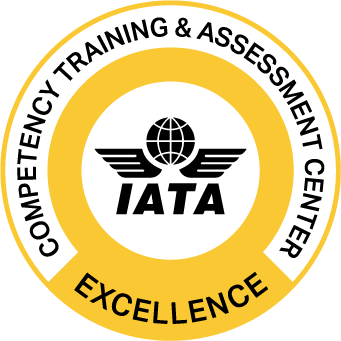Evidence-Based Training (EBT) and Competency-Based Training and Assessment (CBTA) are two distinct approaches to training and assessing individuals, often used in various educational and professional settings. Here are the key differences between them:

Focus and Purpose of EBT :
- Evidence-Based Training (EBT): EBT places a strong emphasis on using empirical evidence and data to inform and design training programs. It relies on research and analysis to determine the most effective training methods and content. EBT is commonly used in fields where safety and adherence to best practices are critical, such as aviation and healthcare.
- Competency-Based Training and Assessment (CBTA): CBTA, on the other hand, centers on identifying and assessing specific competencies or skills that an individual needs to perform a job or task successfully. The focus is on ensuring that individuals acquire the necessary skills and knowledge to meet predefined competency standards.
Assessment Criteria of EBT:
- EBT: The assessment in EBT is typically based on how well the training aligns with established best practices and evidence. It evaluates the effectiveness of the training program and aims to improve it based on data and research.
- CBTA: CBTA assesses individuals based on their ability to demonstrate specific competencies. It sets clear, observable criteria for each competency, and individuals are evaluated on their performance in relation to these criteria.
Training Design:
- EBT: EBT design is driven by scientific research, industry best practices, and the analysis of incidents and accidents to identify areas that need improvement. It seeks to continuously enhance training programs to reflect the most up-to-date knowledge and standards.
- CBTA: CBTA designs training programs with a focus on equipping individuals with the specific skills and competencies required for their roles. These programs often feature competency frameworks that outline the skills and knowledge individuals should acquire.
Industry Applications:
- EBT: EBT is commonly used in safety-critical industries where evidence-based approaches are crucial for maintaining safety and quality standards. Examples include aviation, healthcare, and nuclear energy.
- CBTA: CBTA can be applied across various industries to ensure that employees have the required skills and knowledge for their roles. It is often used in vocational training and education, as well as in professional development.
In summary, Evidence-Based Training is primarily concerned with using empirical evidence and research to improve training programs, while Competency-Based Training and Assessment focuses on assessing individuals based on their demonstrated competencies. These approaches serve different purposes but can also be complementary, as CBTA can incorporate evidence-based principles to ensure that training aligns with best practices and industry standards.

In aviation, we see pilot training syllabi moving to the Evidence Based Training model whereby pilots (who are assessed in the simulator at least every 6 months) are required to conduct a standard flight with some emergencies thrown in to test the base-level before and training has taken place. The training can then be focused on addressing areas that were highlighted as part of the initially observed flight before a final assessment can be conducted. Prior to this, the recurrent training followed a very standard pattern with several days of training and a predictable final assessment to sign the crew member off as proficient to return to service. Findings showed that many run of the mill challenges which crew faced were causing confusion as they had not been properly covered in recurrent training, instead the focus was on engine failures at decision speed and single engine approaches. So for example, this year we have seen an increase in Runway incursions by both vehicles entering the runway (as was the case with the Fire Engine at Lima, Peru or numerous aircraft incidents and near misses when aircraft crossed runways without approval or took off on incorrect runways. As this is an area that is clearly a pain-point at present we could update our training syllabi to inform both flight crew and ground operations staff of the dangers of incursions and train both groups in ways to mitigate such events and how to respond in case of such an event.
Cabin Crew training has also transitioned to the EBT model, it has standardised many elements with other elements of Airline training, which will promote greater standardised responses in various situations. In-Flight crew receive tailored modules in areas such as Application of procedures,
Communication, Leadership and teamwork, Problem solving and decision making, Situation awareness and Workload management with many other EBT training areas being developed.
——————————————————————————————————–

Competency Based Training and Assessment has been launched initially with the Dangerous Goods training syllabus. Previously staff members undertook a Category of training that best fit their role, however, this might result in a significant amount of material covered that was not relenvant, thus diluting the focus on the important materials that are most relevant to the trainee. Using the Tasks and Sub-tasks that the new CBTA syllabus has created the employer conducts a Training Needs Analysis and works with the Training Provider to create a training programme that best suits each role’s specific needs in terms of the content that is covered and also the method pf delivery.
Both will no doubt bring training efficiencies and hopefully deliver a more targeted and engaging training experience. Watch this space…. Only time will tell. Be sure to follow all of the latest updates on EBT from EASA and for CBTA follow IATA.
Other interesting blog posts on this subject are from the United Kingdom Civil Aviation Authority International (CAAI) available here. Also, aviation training experts Halldale have a very interesting post from their recent Civil Aviation Training (CAT) magazine, available here.
Of course we at Butterfly Training (An IATA CBTA Centre of Excellence for the last 2 years) will keep you posted with industry updates like this – https://www.butterfly-training.ie/so-what-is-cbta/ through our Blog.





